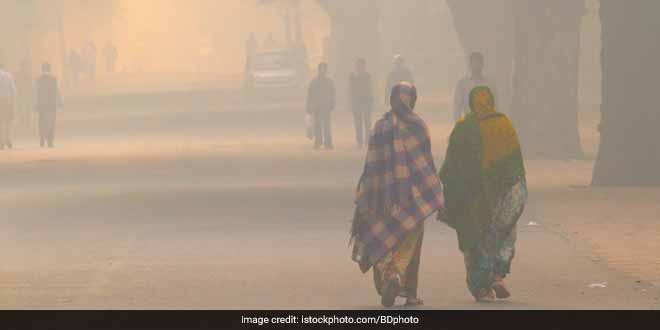Highlights
- Citizens can live longer if air quality matches WHO standards: Study
- Delhi’s pollution reaches perilous levels during the winter months
- Delhi features among the list of most polluted cities in the world
New Delhi: If Delhi’s foul air is cleaned up and made to meet the World Health Organisation (WHO) standards, city residents stand to gain nine years in average in their life span, a study has said. The Air Quality Life Index (AQLI) developed by the Energy Policy Institute at the University of Chicago (EPIC), when considered at the national level, says Indians could live four years longer in average if its air quality meets WHO standards.
The study takes air borne particulate matter (PM) pollution, PM 2.5, into account and extrapolates it to see what impact any reduction in its volume would have on the life span of people.
Accordingly, it says that if PM 2.5 quantity in Delhi’s air meets the WHO annual standard of 10 micrograms per cubic metre (ug/m3), people can live up to nine years longer and six years longer if it meets the national standard of 40 ug/m3. Products of vehicular and industrial combustion, PM 2.5 are air borne ultra-fine particulates, measuring less than 2.5 microns, which can cause irreparable harm to humans by entering the respiratory system and subsequently the bloodstream.
Also Read: Diesel Clouds Varanasi Air As PM Modi’s Electric Boats Fail To Catch Wave
The AQLI reveals that if India reduced its air pollution to comply with the WHO’s air quality standard, its people could live about 4 years longer on average, or a combined more than 4.7 billion life years.
Some of the greatest gains would be seen in the country’s largest cities, such as Delhi. There, people could live 6 years longer if the country met its national standards, and 9 years longer if the country met WHO standards, the study says.
The AQLI arrives at the conclusions by translating the particulate concentrations into their impact on lifespans, “unlike previous studies that tend to rely on data tracking people’s exposure over a short time period”.
It suggests that particulates are the greatest current environmental risk to human health, with the impact on life expectancy in many parts of the world similar to the effects of every man, woman and child smoking cigarettes for several decades, Michael Greenstone, Director of EPIC said.
Delhi has consistently ranked high among the list of most polluted cities in the world. The city is gearing up to tackle pollution that reaches perilous levels during the winter months.
Also Read: Burning Roadside Trash In India Emits Toxic Rainbow: Study




























